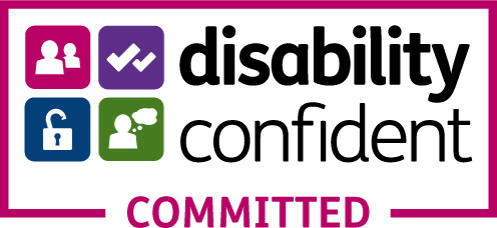Our top 10 tips for a standout CV
Writing a CV can be challenging and, frankly, quite boring – how do you arrange all of the information clearly? And how do you write about yourself without sounding like an egomaniac?
But it’s still a crucial part of any job application, and over 98% of recruiters surveyed recently by CV-Library said a conventional CV holds an important place in getting hired in 2016.
Keeping that in mind, here are our top 10 tips for a standout CV, to give you the best chance of landing that dream job – and to make sure you don’t get it wrong, we’ve given you five do’s and five important don’ts, too.
1. Do list basic skills
Essentials like familiarity with Microsoft Office should always be included – don’t assume the recruiter will automatically know you are computer literate.
In terms of soft skills, CV-Library found communication ranks top, followed by attention to detail, self motivation, a strong work ethic and effective time management, so demonstrate some or all of these if you can.
2. Don’t be too quirky
CV-Library found over three quarters of recruiters don’t expect quirky CVs to become common practice, and the number one bugbear is the inclusion of photos, with over a quarter saying this is irrelevant to an application.
Jargon should be avoided too, along with unnecessarily long words, and outdated employment history; over one in ten recruiters say you should leave off your hobbies too, although in some cases a small section might still be worth including to mention any relevant activities outside of your work life.
3. Do use a stylish layout
It’s not hard to create something stylish using a document template in most modern word processing packages – and choose a modern font that’s easy to read too, with the same typeface used throughout your CV.
4. Don’t be gaudy
A second font may be appropriate for headings, but don’t mix it up too much; stick to styles that complement each other and a simple colour scheme.
Remember if you are sending your CV as a Word document or PDF, the recruiter may want to print it. Make sure you use standard fonts they will definitely have installed on their system, and a colour scheme that will print well in black and white.
5. Do choose your wording carefully
For an extra edge – and to get through any automated filters that the recruiter might use on incoming applications – make sure you tweak your wording to match the terms used in the job advertisement.
6. Don’t use too many words
An elegant CV template should allow you to say everything you need in bullet points and short punchy sentences – don’t overdo it, as the recruiter will only have a few minutes at most to spend on taking their first look at each CV, and short bold statements are much more likely to catch their eye.
7. Do edit and re-edit
A LinkedIn Pulse article by executive resume writer Jessica H Hernandez recommended writing a first draft including all the relevant information to your application – and then going back and cutting out the non-essentials, as well as tightening up the wording to make each sentence pack more punch.
8. Don’t take too much out
In spite of all of the advice above, don’t remove essential information for the sake of a one-page CV. If you have vast and relevant experience or a long list of specific skills that support your application, add a second page to include them: this is your one chance to make the best first impression.
9. Do update your contact details
You need to be contactable to be offered a job, so give a good selection of up-to-date contact details – don’t use a CV with your old mobile number on it, if you’ve recently lost your phone!
It’s good practice to use a professional-sounding email address rather than a ‘funny’ one you’ve had since you were a teenager, and don’t forget a postal address for any formal job offers to be sent in writing.
10. Don’t overshare social media
A well-kept LinkedIn profile might be worth including, but be wary of less formal social media profiles, where you might have expressed personal views your would-be employer might not agree with.
If your application is for a media-related role, you might think your social presence is an important thing to include, so just be careful about what you tweet or post on Facebook, at a time when recruiters might be taking a look.
Still not sure if your CV has what it takes? Why not contact us for some advice and guidance?
Our Awards and Accreditations













 03333 235 900
03333 235 900 Login / Register
Login / Register
